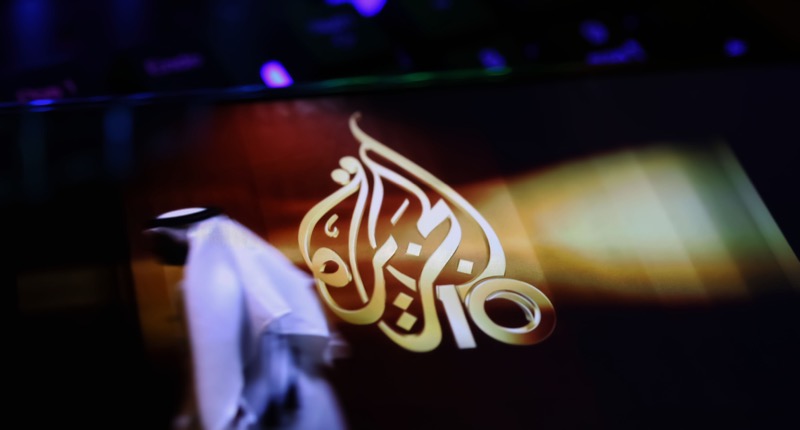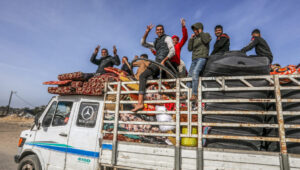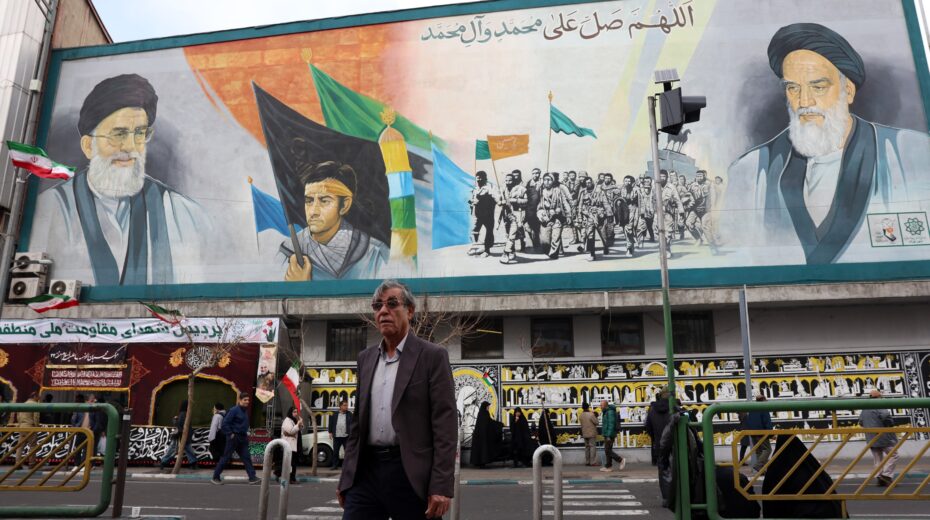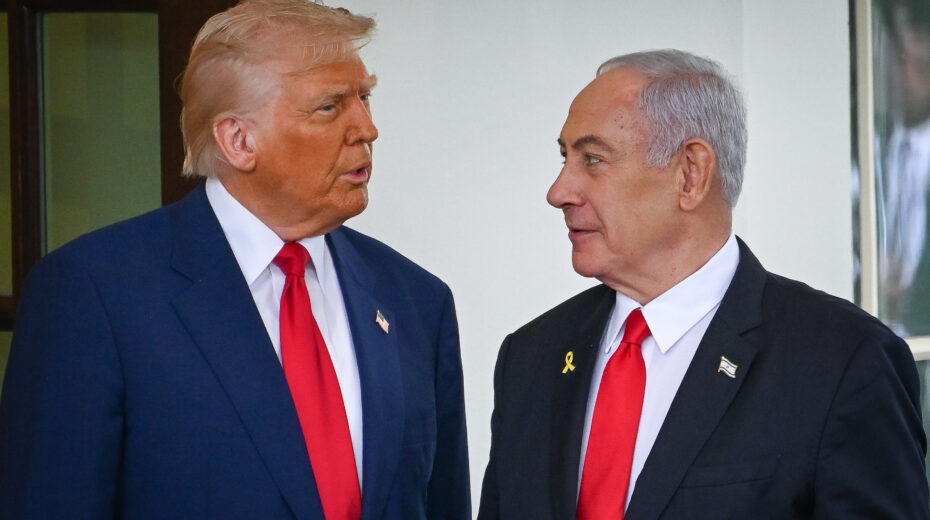On Sunday night, the Israel Defense Forces carried out a targeted strike on a Hamas rocket cell head in Gaza City, Anas al-Sharif, who posed as a journalist for Al Jazeera.
The Qatari pro-Hamas network and several Western media outlets attempted to trivialize the multiple proofs offered by the IDF of al-Sharif’s membership in a Hamas military wing cell, parroting the claim that he was merely a journalist targeted by Israel.
🎯STRUCK: Hamas terrorist Anas Al-Sharif, who posed as an Al Jazeera journalist
Al-Sharif was the head of a Hamas terrorist cell and advanced rocket attacks on Israeli civilians and IDF troops.
Intelligence and documents from Gaza, including rosters, terrorist training lists and… pic.twitter.com/ypFaEYDHse— Israel Defense Forces (@IDF) August 10, 2025
This incident and its international fallout highlight a central feature of the modern information war that Israel is facing: the fusion of terrorist operations with media and propaganda and Hamas’s ability to embed itself in seemingly civilian organizations.
But the latest international media firestorm is also an example of an even larger, associated phenomenon: Israel is under daily attack from a sophisticated, global and multi-layered pro-Hamas propaganda machine, fueled by Qatar, the international Muslim Brotherhood movement, Turkey and others, parroted in the West on mainstream and social media platforms.
Israeli observers told JNS that Israel’s current public diplomacy is woefully insufficient and called for a new, coordinated national headquarters, tasked with the mission of dismantling adversary narratives while going on the offensive.
See related: How Hamas became a powerful social-media influencer
Professor Kobi Michael, a senior researcher at the Misgav Institute for National Security and Zionist Strategy and at the Institute for National Security Studies, told JNS that the latest incident is just one component of a fully integrated, multi-layered information war being waged against Israel.
“We must understand this entire event as a kind of integrated event. Meaning that it is very difficult to isolate events or disconnect the components from one another,” said Michael, who also served as the deputy director general and head of the Palestinian desk at the Ministry for Strategic Affairs.
“The Hamas campaign, for example, is not only conceived in the Gaza Strip by Hamas media and cognitive war personnel, but it is produced in very high quality and supported very significantly by Qatar through the Al Jazeera network. Its correspondents or journalists in the Gaza Strip are Hamas operatives, including the two killed in Gaza last night. The Qatari interest goes beyond glorifying Hamas and echoes Hamas’s narrative,” he argued.
“The interest of Qatar is not only that Hamas remains in power in the Gaza Strip, but that Hamas will eventually become the hegemonic factor in the entire Palestinian arena,” Michael explained. “They are serving Hamas’s agenda and helping Hamas pave the way towards taking over the Palestinian Authority.”
This effort is strongly supported by Turkey, which along with Qatar, is one of the biggest patrons of the Muslim Brotherhood movement. “Turkey echoes the Hamas narrative, but it adds more layers that are originally Turkish,” Michael said, citing President Erdoğan’s comparisons of Israel to Nazi Germany. “There is a well-oiled machine here. Hamas is the driving factor. The amplifying factor is Qatar and Turkey. And then if we go up another level, we see that there is a cognitive effort of the entire axis of resistance led by Iran.”
This well-funded media machine has turned Hamas into a powerful social media influencer, able to shape international opinion. According to an August 3 report in Israel Hayom, Hamas has mastered the art of digital propaganda, using a network of influencers, bots, and sympathetic journalists to spread its narrative globally.
Faced with this multi-front assault on its legitimacy, Israel’s response has been weak and defensive, according to Michael. He argued that Israel remains stuck in an outdated paradigm of “Hasbara” (public diplomacy) when it needs to adopt an offensive strategy of cognitive campaigns.
“We are unable to produce a cognitive effort that crosses sectors, that knows how to act as a very sharp arrow into the consciousness of Hamas, the population of Gaza or those who reside in the Palestinian Authority or the international media,” Michael lamented. “For so many years, we have understood the importance of the cognitive effort and for so many years, we have been talking about the need to do it. This isn’t about criticism of Israel, it is legitimate to criticize it. This is an onslaught. Those behind it relieve Hamas of responsibility for this entire reality and place everything on Israel.”
He called for a complete strategic overhaul, led from the top. “This whole business needs to be planned in one place, in one headquarters, led from the Prime Minister’s Office,” he argued. “There needs to be a national body subordinate to the Prime Minister that knows how to integrate all state and non-state actors in Israel and abroad. We need to establish a cognitive army.”
This new apparatus, he said, should go on the offensive with aggressive campaigns. “Just as you plan an operation to conquer Gaza, you plan an operation to dismantle the UN,” Michael proposed. “The UN should be attacked with this campaign from different directions. So should The New York Times.” Michael added, “This can also be accompanied by legal steps. The Prime Minister said we are considering a lawsuit. Yes, sue them, force them to pay millions upon millions to lawyers, exhaust them in the courts. This is part of cognitive warfare.”
Michael Barak, a senior researcher at the International Institute for Counter-Terrorism (ICT) at Reichman University, detailed the specific mechanisms of this propaganda war. He pointed to the powerful influence of pro-Hamas social media figures in Gaza, some of whom have millions of followers on TikTok who have been key in peddling “deliberate starvation campaign” propaganda.
A major front in this war, Barak explained, is on Western university campuses, led by organizations such as the National Students for Justice in Palestine (SJP). “NSJP is an umbrella organization of 350 pro-Palestinian student cells at universities across the United States,” Barak said.
He noted that one of the founders of SJP, Hatem Bazian, a professor at UC Berkeley, also founded the organization American Muslims for Palestine (AMP), which the Anti-Defamation League “is at the core of the anti-Israel and anti-Zionist movement in the United States. AMP’s leadership frequently engages in rhetoric that promotes antisemitic tropes and support for violence against Israel, such as praising Hamas for the Oct. 7 attack, which marked the deadliest massacre of Jewish people since the Holocaust.”
A current board member of AMP was implicated in Hamas activity in the 1990s, according to an FBI memorandum, the ADL stated. “There are suspicions,” Barak stated, “that these student groups echo the messages of Hamas.
Barak called for the United States government to place sanctions on both university administrations and social media companies that refuse to deal with incitement to terrorism.
“I monitor global jihadist online activities almost daily. And I see that on Facebook, there are closed groups of members who identify as Al Qaeda and ISIS, and Facebook does not bother to remove them. There are pro-Hamas communities and Facebook and incitement. When I report these things, they are not always removed.”
Barak assessed that Israel needed to set up a dedicated body that deals with social media propaganda and incitement.
The social media propaganda machine against Israel features influencers and is significantly backed by the Muslim Brotherhood, he stated. “The Brotherhood gives a very serious boost to these campaigns, whether in London or Turkey. The West is very important in this effort,” Barak warned.
In August 2021, Barak published a study on an organization called al-Tajammu al-Arabi wal-lslami li-Da’m Khiyyar al-Muqawma (“the Arab and Islamic Union Supporting the Resistance Option”), which he said “serves as an international, pro-Iranian platform to leverage the resistance axis against the US, Israel and their allies.”
He noted, “This Lebanon-based pro-Iranian organization has tight connections with Hezbollah and Shi’ite militias in Iraq and Yemen, as well as with other terrorist organizations such as Palestinian Islamic Jihad and the Popular Front for the Liberation of Palestine.”
The organization, he said, “managed to cultivate a global network whose members are radical organizations and persons, either religious or secular, who share a similar world view and interests, the chief of which is a struggle with Imperialism and Zionism. As some members attested, the network is meant to strengthen the resistance axis and weaken its enemies.”
Want more news from Israel?
Click Here to sign up for our FREE daily email updates














